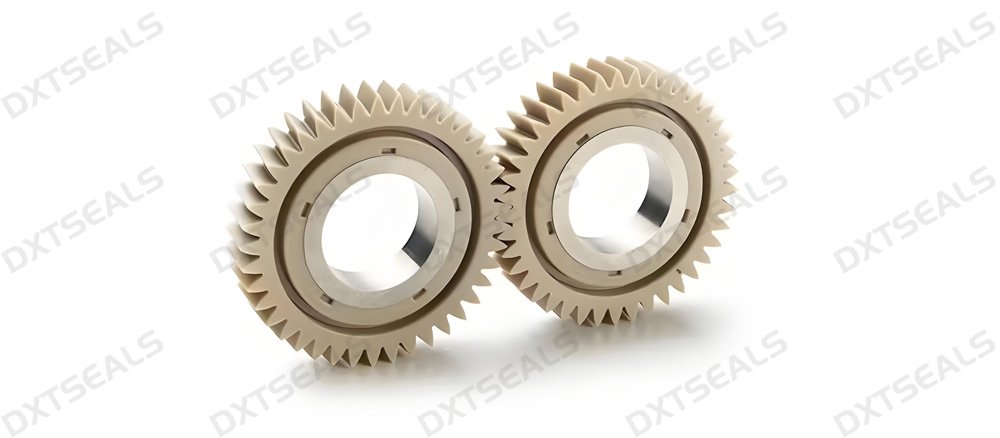
Polyetheretherketone (PEEK) is a high-performance engineering plastic that has gained popularity across industries due to its exceptional mechanical strength, heat resistance, and chemical stability. But how does it compare to other commonly used engineering plastics like PTFE, Nylon, PPS, and Polycarbonate?
In this article, we will explore the key properties of PEEK and compare them with other engineering plastics to help you determine the best material for your applications.
1. Mechanical Strength and Durability
PEEK (Polyetheretherketone)
- Exceptional tensile strength (90-100 MPa)
- High impact resistance and fatigue resistance
- Retains mechanical properties even under extreme conditions
- Excellent dimensional stability
PTFE (Polytetrafluoroethylene)
- Low mechanical strength compared to PEEK
- Very soft and prone to deformation under load
- Extremely low friction and high wear resistance
Nylon (Polyamide)
- Good tensile strength but lower than PEEK
- Absorbs moisture, which can reduce dimensional stability
- Moderate impact resistance
PPS (Polyphenylene Sulfide)
- Good mechanical strength but more brittle than PEEK
- High resistance to deformation at high temperatures
Winner: PEEK, due to its superior strength, impact resistance, and dimensional stability.
2. Temperature Resistance
PEEK
- Continuous operating temperature: 250°C (482°F)
- Short-term heat resistance up to 300°C (572°F)
- Maintains structural integrity in extreme heat
PTFE
- Continuous operating temperature: 260°C (500°F)
- Softens under load at high temperatures
Nylon
- Continuous operating temperature: ~120°C (248°F)
- Loses strength and shape at high heat
PPS
- Continuous operating temperature: ~200-220°C (392-428°F)
- Good heat resistance but lower than PEEK
Winner: PEEK, for its ability to maintain strength and performance at high temperatures.
3. Chemical Resistance
PEEK
- Resistant to most chemicals, acids, and solvents
- Highly resistant to hydrolysis (hot water and steam exposure)
PTFE
- Excellent chemical resistance
- Almost completely inert to most chemicals
Nylon
- Resistant to oils and some chemicals
- Can be affected by strong acids and solvents
PPS
- Good chemical resistance but lower than PEEK and PTFE
- Can be affected by some strong acids
Winner: PTFE has the best chemical resistance, but PEEK offers a superior balance of chemical and mechanical properties.
4. Wear and Friction Performance
PEEK
- Excellent wear resistance
- Low coefficient of friction (can be improved with fillers)
- Performs well under high-load and high-speed applications
PTFE
- Extremely low friction (best for non-stick applications)
- Not as wear-resistant as PEEK in high-load environments
Nylon
- Good wear resistance but higher friction than PTFE and PEEK
PPS
- Moderate wear resistance, not suitable for extreme conditions
Winner: PEEK, as it balances low friction and high wear resistance, making it ideal for demanding applications.
5. Electrical Insulation Properties
PEEK
- Excellent electrical insulation, even at high temperatures
- Used in electrical components and connectors
PTFE
- Superior dielectric properties, making it ideal for electrical insulation
Nylon
- Good electrical insulation but affected by moisture absorption
PPS
- High electrical resistance and thermal stability
Winner: PTFE is the best electrical insulator, but PEEK is superior for high-temperature electrical applications.
6. Common Applications
| Material | Typical Applications |
|---|---|
| PEEK | Aerospace, medical implants, automotive, industrial components |
| PTFE | Seals, gaskets, non-stick coatings, electrical insulation |
| Nylon | Gears, bearings, automotive components, textiles |
| PPS | Electrical housings, chemical processing components, high-heat applications |
Conclusion: Is PEEK the Best Engineering Plastic?
PEEK offers the best combination of strength, heat resistance, chemical stability, and wear resistance, making it the preferred choice for high-performance applications.
| Property | Best Material |
|---|---|
| Strength & Durability | PEEK |
| Temperature Resistance | PEEK |
| Chemical Resistance | PTFE |
| Wear & Friction | PEEK |
| Electrical Insulation | PTFE |
| Cost-Effectiveness | Nylon & PPS |
If you need a high-performance material for demanding applications, PEEK is the best choice. However, if cost is a concern, Nylon or PPS may be more suitable.
Final Recommendation:
- Use PEEK for extreme temperatures, high loads, and demanding chemical environments.
- Use PTFE for low-friction and chemically inert applications.
- Use Nylon for cost-effective, moderate-performance applications.
- Use PPS for electrical and chemical resistance with moderate cost.
